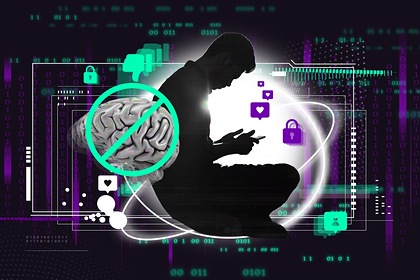The use of social networks can inhibit the development of emotional intelligence, and likes and emojis contribute to this, says Areg Mkrtychyan, associate professor of the Department of Clinical Psychology of the Pirogov Russian National Research Medical University. He told about this in a big interview with “Lente.ru” in the framework of a large-scale special project “Algorithm. Who controls you? “
“Because of social media, communication is being formalized. We notice from the example of adolescents, and sometimes adults, that likes and emojis do not allow the emotional sphere to develop. And it is like intelligence – it also needs to be developed. That is why the variability of emotional responses shrinks: I have to either like or ignore. I don’t have any more opportunities, ”Mkrtychyan explained.
The second important problem that adversely affects the psyche and intellect, which the specialist named, is the availability of information on social networks and on the Internet in general.
“The information there is extremely accessible, it does not need to be searched for and synthesized. Due to the availability of information and its patchwork, people do not learn to interpret and search for it, they do not know how to build logical connections and sequences, ”the expert stated.
Under the influence of this factor, thinking as a mental function changes. People living in a stream of ready-made and primitive information atrophy the ability to isolate or transmit complex information, says Mkrtychyan. As an example, he cited a generation over 40 years old who are able to retell an entire film.
“But a modern teenager who can retell a two-hour film not with the words“ it was cool, everyone was soaked ”or“ everyone got married, ”but I cannot imagine the plot, the names and characters of the characters,” said the clinical psychologist.
According to him, this is facilitated by the information field in which modern adolescents revolve. “It now looks like a boundless, but shallow ocean. There is a lot of information, but to dive into the depths, or there is no possibility, or there is no desire, and sometimes all together, ”concluded Mkrtychyan.
“Algorithm. Who controls you? ” – a large-scale special project-study of the influence of algorithms of the world’s most popular services on a person, society, politics and global world processes. In six parts of the project, it is analyzed in detail how the content ranking system in social networks affects the real life of millions of people: it imperceptibly changes a person’s attitude to love, family, friendship, society, and affects the intellectual abilities of people.
How does social media affect young people? How will the buzzers that always look at the smartphone screen grow? The older generation answers this question unequivocally: the Internet only makes teenagers worse. But young people themselves still do not understand exactly how social networks affect them: 31 percent believe that it is positive, and almost half cannot give a definite answer. They are called digital natives – people who don’t remember or even don’t know what the world was like before the internet and social media. Along with this, they have already faced an epidemic of mental disorders and suicide, have less sex and get married.









